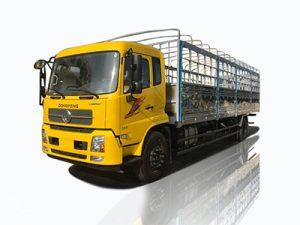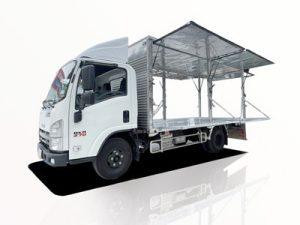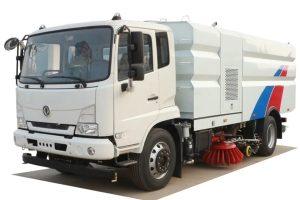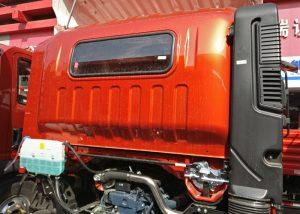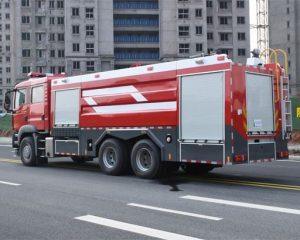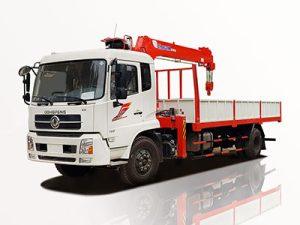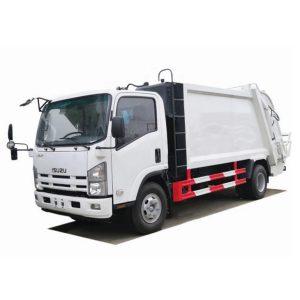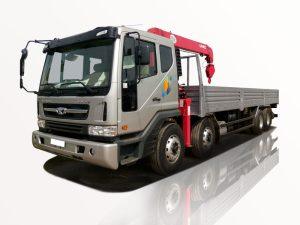Monday to Saturday - 8:00 -17:30
Understanding the Different Types of Construction Trucks
In the world of construction, trucks play a vital role in transporting materials and equipment to ensure a seamless workflow. With various types of construction trucks available, it’s essential to understand their specific functions and applications. This article explores the major types of construction trucks, their features, uses, and tips for choosing the right one for your project.
1. Dump Trucks
Dump trucks are one of the most recognizable types of construction trucks. They are primarily used for transporting loose materials such as sand, gravel, and dirt. The open-box design allows for easy loading and unloading.
1.1 Types of Dump Trucks
| Type | Description |
|---|---|
| Standard Dump Truck | A truck with a hinged bed that lifts to dump its contents at an angle. |
| Articulated Dump Truck | A truck that has a pivot point between the cab and the dump bed, allowing for better maneuverability in rugged terrains. |
| Transfer Dump Truck | A standard dump truck with a trailer that can haul additional loads, maximizing transport capacity. |
| Side Dump Truck | Features a side tilting mechanism to dump loads sideways, making it efficient for certain applications. |
1.2 Practical Applications
Dump trucks are used in various construction projects, from large-scale road construction to smaller residential jobs. For instance, when building a new home, dump trucks transport gravel and soil for foundational work, while road crews utilize them to move asphalt and other materials.
2. Concrete Mixer Trucks
Concrete mixer trucks are essential in the construction industry for transporting concrete from the batching plant to the job site. They ensure that the concrete remains in a workable state during transit.
2.1 How They Work
Concrete mixer trucks are equipped with a rotating drum that mixes the concrete ingredients. The truck can keep the concrete agitated to prevent it from setting. Upon arrival at the site, the drum’s rotation continues to ensure easy unloading.
2.2 Types of Concrete Mixer Trucks
| Type | Description |
|---|---|
| Rear Discharge Mixer | The most common type, which discharges concrete from the back of the truck. |
| Front Discharge Mixer | A mixer that allows drivers to control the discharge from the front, offering better visibility. |
2.3 Tips for Choosing a Concrete Mixer Truck
- Evaluate the volume of concrete needed for the project.
- Consider the accessibility of the project site.
- Check the truck’s mixing capacity and features.
3. Flatbed Trucks
Flatbed trucks are versatile vehicles used for transporting various materials, such as construction equipment, lumber, and machinery. Their flat loading surface makes them easy to load from any side.
3.1 Advantages of Flatbed Trucks
- Easy loading and unloading due to the open design.
- Ability to transport oversized loads that wouldn’t fit in enclosed trucks.
- Flexibility for different types of cargo within the construction industry.
3.2 Specific Uses in Construction
Flatbed trucks are often used to transport large items like beams, pipes, and equipment like bulldozers or excavators. For instance, they can be instrumental in transporting prefabricated building materials directly to the construction site.
4. Tanker Trucks
Tanker trucks are specially designed for transporting liquids, including water, fuel, and chemicals used in construction. They are crucial in projects requiring substantial volumes of liquid material.
4.1 Types of Tanker Trucks
| Type | Description |
|---|---|
| Water Tanker Truck | Used for transporting water for dust control or as a mix component in concrete. |
| Cement Tanker Truck | Specifically designed for transporting bulk cement. |
4.2 Usage Tips
- Ensure the tanker truck’s capacity matches the project needs.
- Verify the compatibility of materials with the tank materials.
5. Cranes and Lifting Trucks
Cranes and lifting trucks are integral for heavy lifting and positioning during construction. They come in various forms, each suited for specific applications.
5.1 Types of Cranes
| Type | Description |
|---|---|
| Mobile Crane | Can be easily transported to various sites, providing flexibility in lifting operations. |
| Tower Crane | Commonly used in tall buildings, providing height and lifting capacity. |
5.2 Practical Applications
Cranes are widely used in construction sites to lift heavy materials, such as steel beams and pre-cast concrete sections. For example, tower cranes are predominant in skyscraper construction due to their height and range.
6. Pickup Trucks
Pickup trucks are smaller vehicles often used in construction for transport and logistics. They can carry tools and smaller materials effectively.
6.1 Benefits of Pickup Trucks
- Easy maneuverability in tight spaces.
- Cost-effective for smaller jobs.
6.2 Common Uses
Construction teams utilize pickup trucks for hauling tools, equipment, and small quantities of materials. They’re a staple for most construction sites due to their versatility.
7. Specifications to Consider When Choosing a Construction Truck
Selecting the right construction truck requires considering several specifications relevant to your project needs.
7.1 Load Capacity
Determine the maximum weight the truck can carry. This should align with the materials and equipment you plan to transport.
7.2 Engine Power
Higher engine power improves performance, especially in rugged terrains. Ensure the truck has enough horsepower for your expected workload.
7.3 Size and Maneuverability
Consider the size and maneuverability of the truck in relation to your job site. Smaller sites may require more compact vehicles.
8. Maintenance Tips for Construction Trucks
Maintaining construction trucks is crucial for performance and longevity. Here are some essential tips:
- Regularly check tire pressure and tread condition.
- Keep the engine oil clean and at the right level.
- Inspect brakes and lights frequently.
- Clean the trucks regularly to prevent rust and wear.
9. Environmental Considerations for Construction Trucks
As the construction industry focuses more on sustainability, consider eco-friendly options when selecting trucks. Many manufacturers now offer hybrids or trucks that meet higher emission standards.
9.1 Benefits of Eco-Friendly Trucks
- Reduced fuel consumption and emissions.
- Potential tax incentives for using environmentally-friendly vehicles.
10. Frequently Asked Questions (FAQ)
10.1 What is the most common type of construction truck?
The most common type of construction truck is the dump truck, due to its versatility in transporting various materials.
10.2 How do I know which construction truck I need?
Consider the specific materials you need to transport, the weight, and the accessibility of your construction site to determine the right truck type.
10.3 Are there regulations for construction trucks?
Yes, construction trucks must adhere to specific regulations regarding emissions, load limits, and safety standards based on local laws.
10.4 How can I ensure my construction truck lasts longer?
Regular maintenance, proper loading techniques, and ensuring safe driving practices can significantly extend the lifespan of your construction truck.
10.5 What are the benefits of using eco-friendly construction trucks?
Eco-friendly trucks reduce carbon emissions, lower fuel consumption, and may provide cost savings through tax incentives and reduced operating costs.
10.6 Can construction trucks be rented, or should I buy?
Renting is a cost-effective option for short-term projects, while purchasing might make sense for long-term use, depending on your construction needs.


